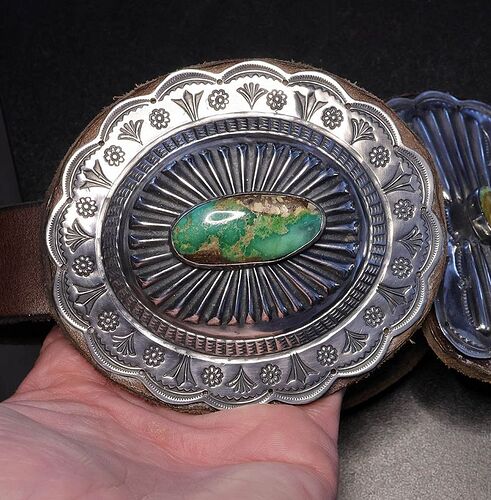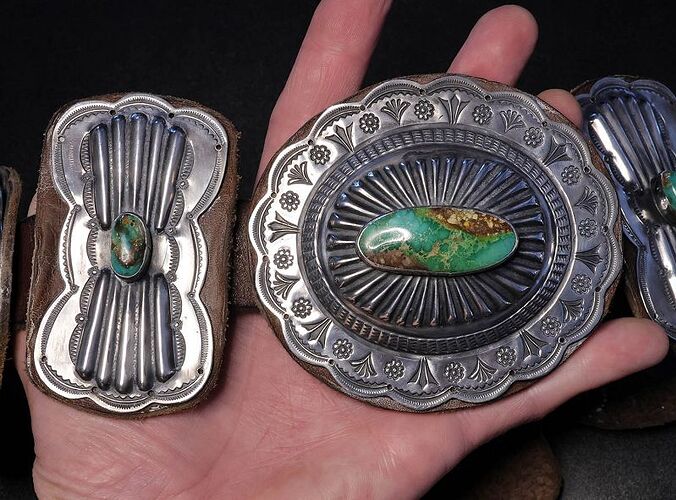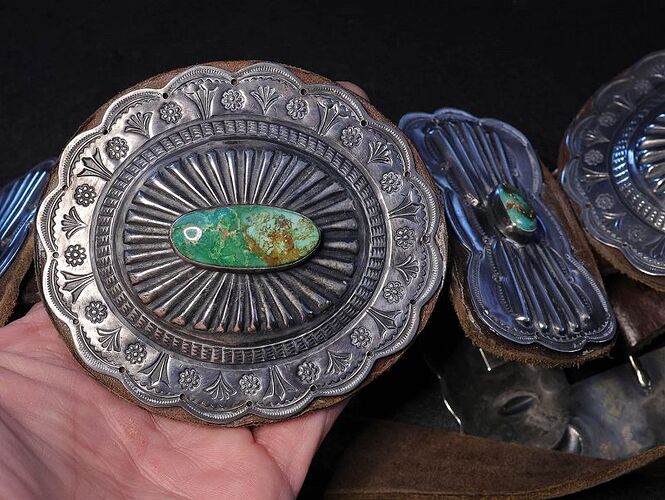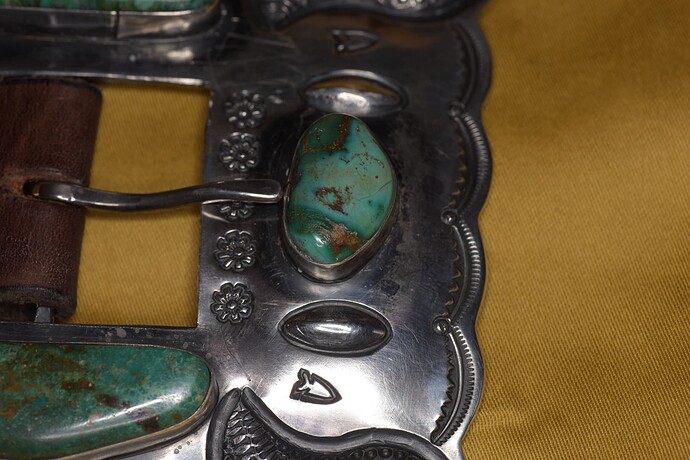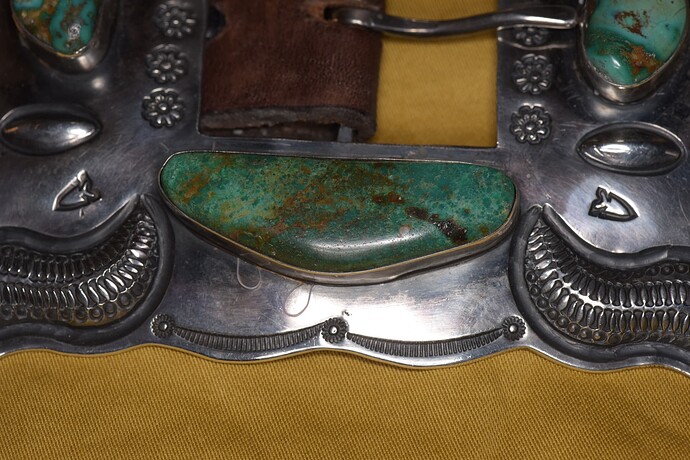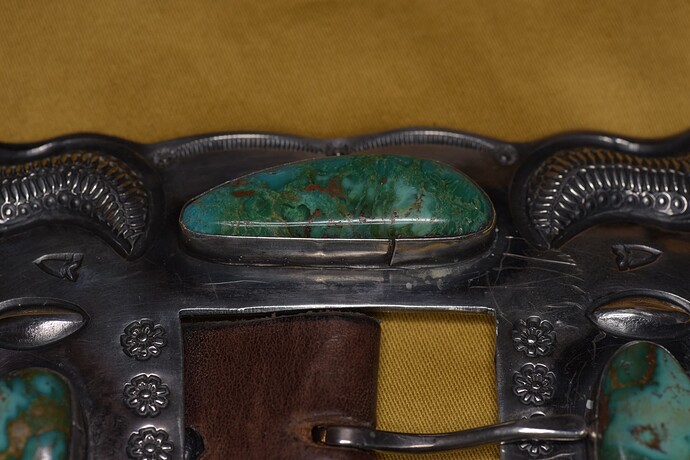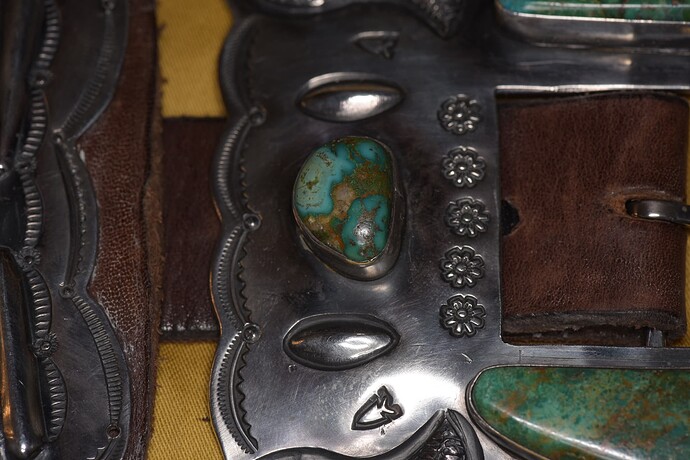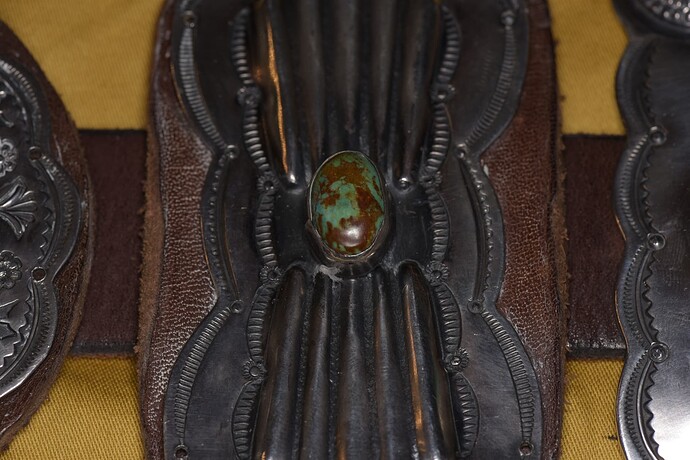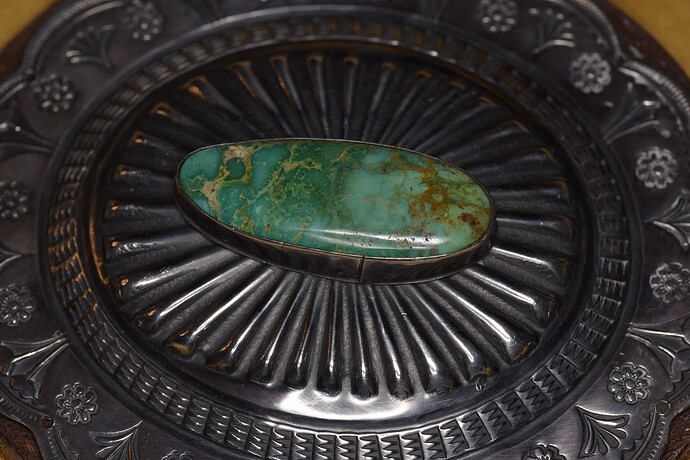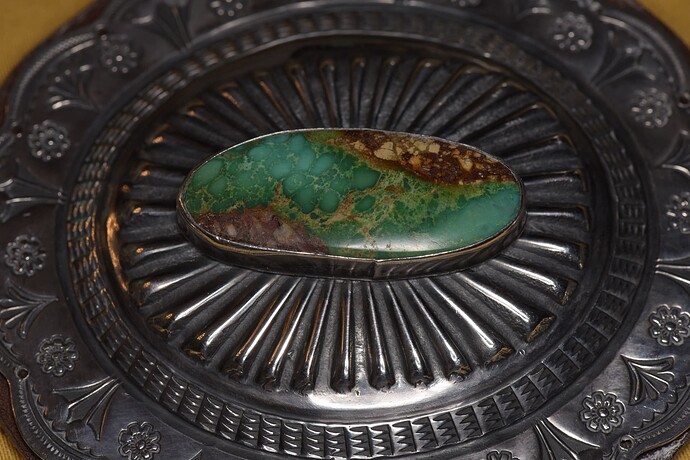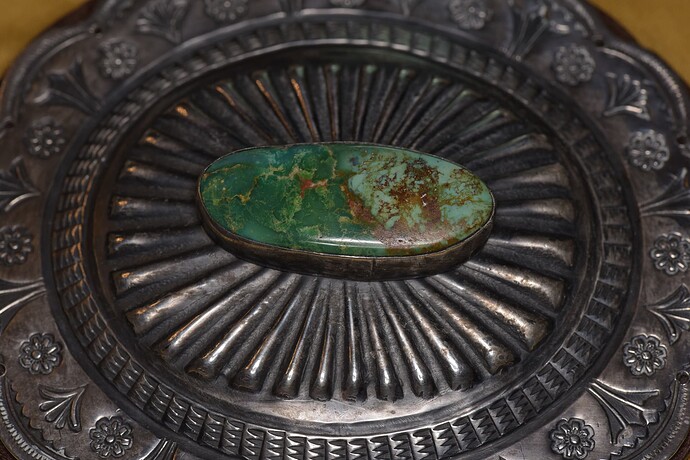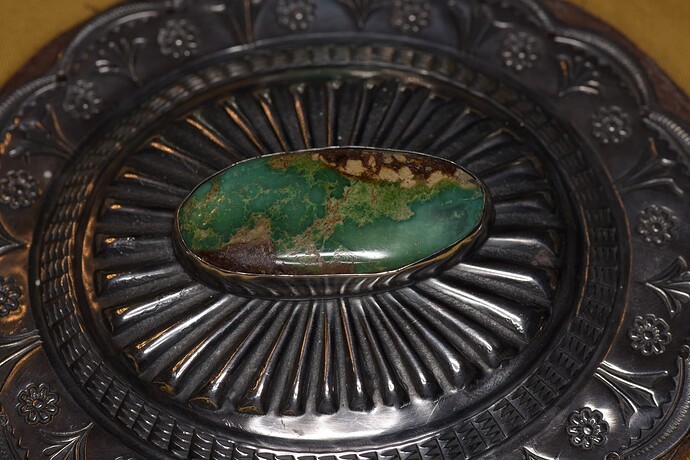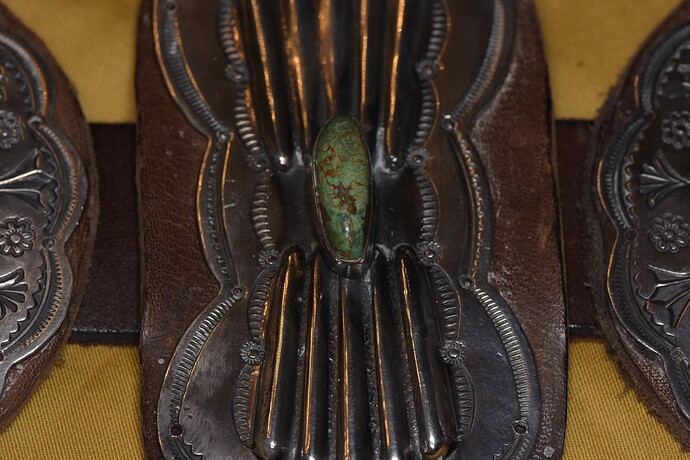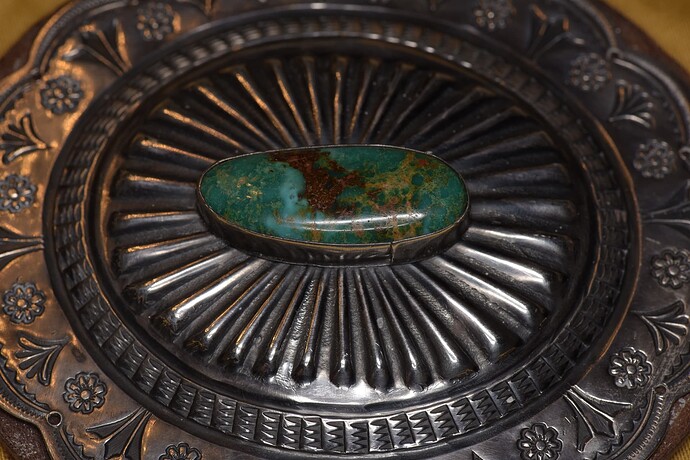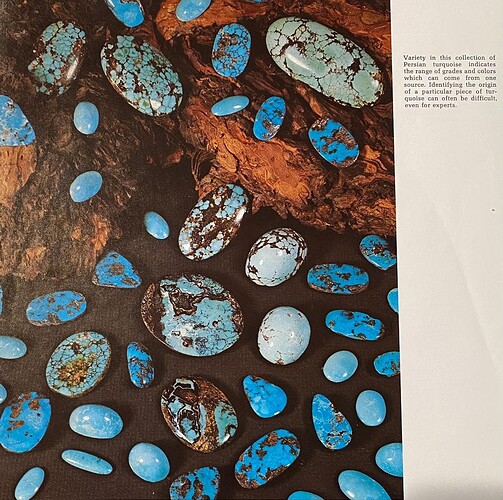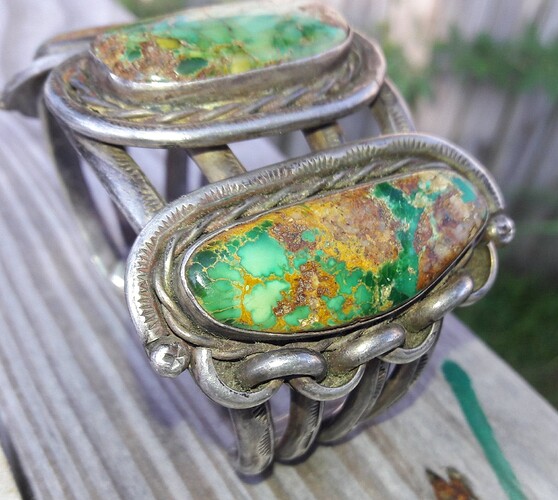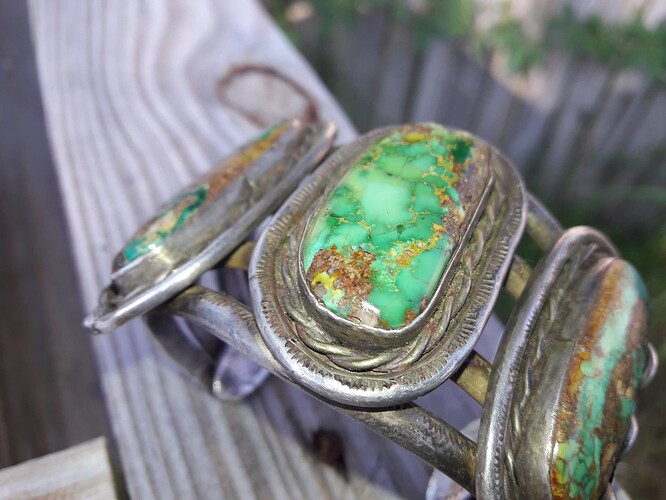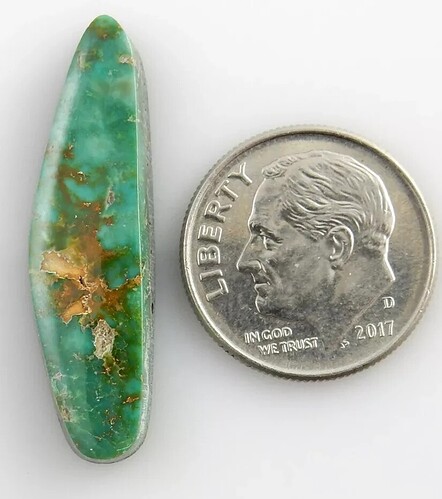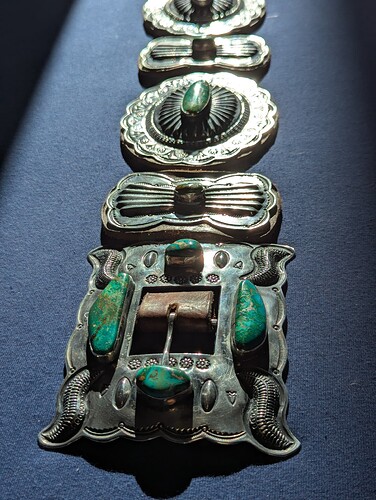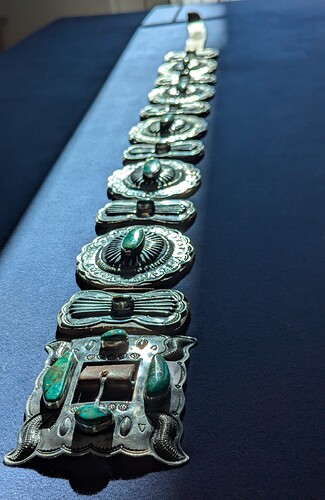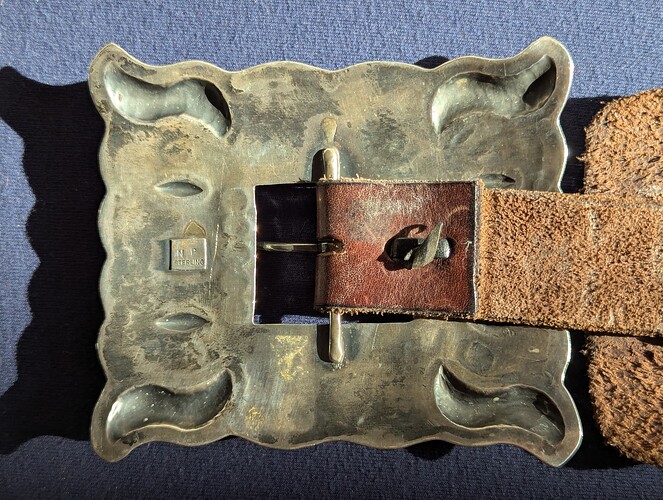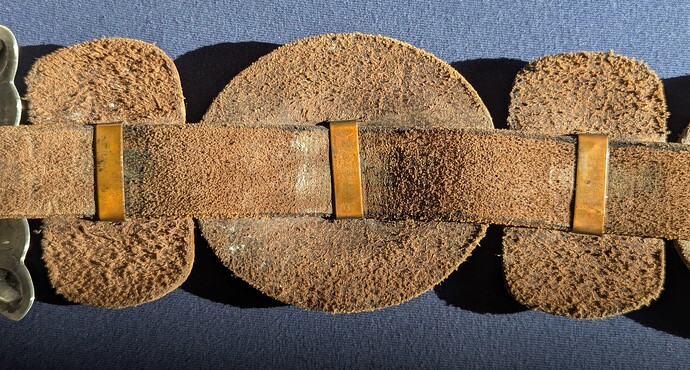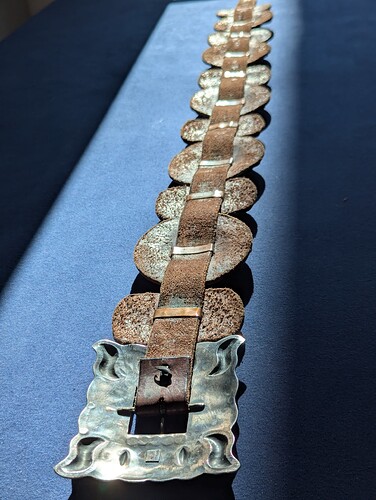Here’s a link where the differences were discussed.
Possible Turquoise Type?
I’m still of the feeling that they probably would have used the same turquoise all throughout the concho belt. And again, we are all just making educated guesses. But it is fun to guess ![]()
@Jason may I kindly ask your expertise, please? Sorry to just pull you in.
Gorgeous belt and I think you bought it for an excellent price! ![]()
![]()
![]()
Have gone thru the photos again. @Jason stated
However, the big clue is how thin the cut is. Pilot is a thin vein and that is why you see these really thin cuts with lots of host rock.
Looking at those two stones in my belt, I believe these have been “direct neighbors” in the vein, on top of each other.
Looks like the cabochon are rather thick, from the existing photos I would guess about 5mm = .2", or more.
So it was likely not a “thin vein”, in both dimensions, pointing us towards Royston.
Will post better photos once I have the belt.
Turquoise is always tricky. I bought a bag of Emerald Valley Turquoise from a cutter once that looked just like this. I tried to do a quick google search to find something that looked like it, not a perfect match.
Thanks a lot, so maybe best would be to ask the artist himself. Anyone a clue how to contact Neal Paquin (assuming he’s still active in the business)? Maybe he’s even proud of we ask him about his work …
Maybe look for him on Facebook? I’m not familiar with him, and I can find very little about him online. The origin of the stones may always be a bit of a mystery.
I believe I read that the Emerald Valley mine is in the area of the Royston mine.
Not really what I had hoped to hear, but, LOL, your best guess is still really valuable, for sure.
Thanks a lot, @Jason .
I would guess any of the above except Ithaca Peak. There’s no way to know for sure.
That was the recommendation of Bing Copilot when I asked about Neal Paquin’s most used turquoise. LOL.
Well, I don’t trust Bing ![]() I imagine Bing would only find what’s online, and I hardly found anything. And the little I found was on sites like eBay and Etsy where people don’t know what the heck they’re talking about regarding turquoise. That’s just my 2 cents worth.
I imagine Bing would only find what’s online, and I hardly found anything. And the little I found was on sites like eBay and Etsy where people don’t know what the heck they’re talking about regarding turquoise. That’s just my 2 cents worth.
People online usually seriously don’t understand that you can’t be sure what mine turquoise is from without good provenance. They try to guess, and often just pick a famous mine. I like to look and have fun guessing, and then stop worrying about it.
So true! Take these Persian stones for example, and the author’s comments, from the 1975 book, Turquoise Treasures: The Splendor of Southwest Indian Art.
A couple of those stones in your conchos remind me of these stones on a cuff I have. Dark green fading into a lighter green with brown/gold matrix. I do not know its origins either!
Southwest Silver looks like a trustable seller.
He’s got stones that look like mine in the belt. Could they be Carico Lake?
The stones look natural, or are they stabilized? Trying to learn how to spot the difference.
On the first glimpse going thru the book, I feel it’s very hard to date my belt.
Similar belts have been made in the 1920s to 40s, even 50s.
Then again during the revival, similar ones have starting popping up in the late 1980s up to the 2000s.
We’ll never know what is right or wrong, but as most other items of Neal Paquin are attributed to the 1980s, this would be my wild estimate.
References
- icollector, 1950s/60s - wrong dating?
- etsy, 1980s
- liveauctioneers, 1980s
- metroretrovintage, 1980s
- vermaestatejewelry, 1990s
Also seeing that the hallmark on my belt was added on top of the surface, I believe it’s one of Neal’s very first pieces of silversmith art. The stone on the other side was set, and he didn’t want to risk scratching it by punching in his initials, I guess. Thus, 1980s.
On top, at least up to 2019 (maybe even today), a Native American named Neal Paquin owned a silversmith shop in Santa Fe’s Plaza. That could, maybe, be him too.
Will now start reading the book in a more organized way.
Got amazing support from a well-known belt expert ![]()
This is not Navajo but Laguna/Zuni work, likely from the late 1980s to early 1990s. Also found and contacted Neal to kindly ask for more information.
